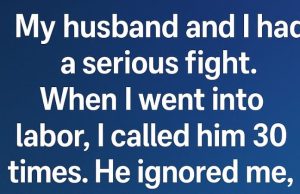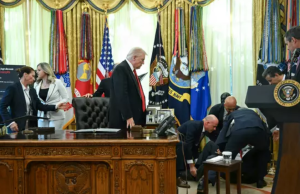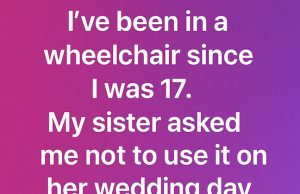
That day, everything seemed taken from the most tender pages of a fairy tale. The restaurant’s air was filled with the scent of jasmine and fresh roses, the spotlights falling softly on the bride’s white dress, as if heaven itself had blessed the moment.
Every detail was in place: silk ribbons, sparkling rings, the trembling voices of the parents, crystal flutes filled with champagne, and the music flowing like a torrent of light. Katia’s mother couldn’t hold back her tears—tears of joy, of love, of hope. The guests laughed, hugged, danced, and the smiling photographer captured every moment, immortalizing what was meant to be the beginning of a happy life.
Katia stood in the center of the room—the dream bride. Her eyes shone, her heart beat to the rhythm of dreams of love, of family, of the future. At her side, Antón, her fiancé, the man in whom she had placed everything: her faith, her hope, her soul. They held hands, as if they were joined not only by their rings, but also by their destinies. Everything was perfect. Or at least, that’s how it seemed.
But in a single instant—a single, deafening instant—the illusion shattered.
It all started when Katia laughed. She simply laughed.
She laughed as only she knew how—with a clear, free, sincere voice, from the depths of her heart. A laugh that Antón had once called “her magic.”
But this time, something broke. His face changed instantly. The blood drained from his face, his eyes became strange, empty. Someone would later say he interpreted the laughter as mockery. Another would say it was a bout of paranoia, an old rift hidden behind a mask of calm. But in that moment, there were no excuses, no explanations.
There was only a blow.
He raised his hand—suddenly, as if his arm were acting on its own—with such force that the sound of the blow to her cheek resonated like a gunshot.
Katia staggered, as if she’d been hit by a car. The room fell into icy silence. The music stopped. Someone screamed. Someone dropped their glass. The photographer froze, camera in hand, as if time had stopped.
Katia stood, holding her burning cheek, unable to move. Her eyes were wide—not from pain, but from shock. From understanding. From betrayal. In front of her stood the man she planned to give her entire life to, and there wasn’t a shred of regret in his gaze. Only anger. Only hatred.
“What the hell are you doing, you bastard?!” Katia’s mother yelled, running to her daughter.
“You’re embarrassing me!” Antón yelled, pointing at her. You’re not who I thought you were! This is all a mistake! I should never have married her!
The words fell like stones. He screamed that she “wasn’t behaving as she should,” that “it was all a farce,” that “she had never loved him.” But no one listened anymore. The guests stared at him in horror, like a stranger, like a ghost.
And then Katia did something no one expected…
She straightened up. Slowly, like in a movie, she removed her veil and placed it carefully on the floor—a symbol of a fading illusion. Tears streamed down her cheeks, but there was no weakness in them. There was liberation. Awareness. Strength.
“Thank you, Antón,” she said in a voice as firm as steel. “Better one blow today than a lifetime at your side.”
She turned to the guests, and her words hung in the air:
“Sorry to ruin the party. But I think I just saved my life.”
The room erupted. Not with shouts, not with panic—but with applause. Long, loud, heartfelt. People stood up, hugged Katia, cried with her. Not because the wedding had gone well, but because a heroine was born in that room. Not with armor, not with a sword, but with a torn veil, a bruise on her cheek, and a heart that didn’t break.
Antón was led away. Later, he was handcuffed. Katia’s mother filed a police report. The wedding was over. But life was just beginning.
One year later. The same restaurant. But it wasn’t a wedding anymore—it was a celebration of life.
Exactly on July 30th, one year later. Katia returned to the same room. Not in a white dress. Not with a ring. Not with a fiancé. But with a smile, with friends, with a new man named Igor—calm, kind, genuine.
The first months after that night were the hardest. The physical pain passed quickly. But the pain in her soul cut deeper than any blow. Katia wasn’t ashamed of Antón. She was ashamed of herself. Of having turned a blind eye to the warning signs: his outbursts, the humiliations, the “jokes” that hurt her heart. She remembered how he justified it: “He was just tired,” “He loves me,” “It was a one-off.” Now she understood: that wasn’t love. It was control. It was the path to destruction.
She changed her number. She moved to another neighborhood. She found a psychologist—a woman with warm eyes and a firm voice, who taught her to say, “I have the right.” And then—the hardest part—she told her parents the truth. That it wasn’t the first time. That there had been “gentle pushes,” “playful slaps,” “scandals” after drinking. That she had kept silent. That she had been afraid.
They cried. Then they hugged her. And then—every day—they reunited. Small steps. Without rushing. Katia learned to laugh again. Without looking back. Without fear. Without trembling inside.
Six months later, she met Igor at a volunteer project. He didn’t make promises or make scenes. He was just there. He brought tea when she had a sore throat. He opened the door. He listened. He really listened. Without interrupting. Without judging. Katia kept her distance—fear was stronger than reason. But Igor didn’t push. He waited. He knew that trust isn’t taken, it’s only earned.
And so—a year later—they were sitting in that same restaurant. On the table—a cake. In the icing—the words: “With love—to yourself.”
No one shouted. No one pressured. People laughed genuinely. Someone whispered:
—That Katia wouldn’t have resisted. This one—she could.
Katia raised her glass:
—A year ago I lost my wedding. But I found myself. And you know what? Finding yourself is worth so much more.
The following months. A new house. A new silence.
Katia and Igor moved in together. Not out of fear of being alone. Not because of pressure. But because they wanted to—wake up together, have breakfast together, watch movies under the same blanket. No scenes. No shouting. No fear.
—I’m not used to silence, Katia once said. Before, there was always noise: screams, threats, tears. And now—only silence.
—That’s security, Igor replied quietly. And it’s yours. Forever.
But one day someone knocked on the door.
Antón. Deteriorated. Faded. But with the same anger in his eyes.
—We had love, he said. You ruined my life. Without you, I’m nobody. Come back.
Katia closed the door silently. Her hands were shaking. Igor called the police. It turned out Antón had recently been released on parole after another incident—this time with a former coworker. The judge was waiting for him again.
Katia filed the complaint. Without tears. Without trembling. Calmly. Firmly. She was no longer a victim. She was a woman who knows her worth.
And then she spoke.
Katia started a blog. Not for fame. Or for “likes.” But for those who remain silent. Those who are afraid. Those who believe this is “love.” Those who think “that’s just the way it is.”
At first, ten people followed her. Then a thousand. Then tens of thousands. Women wrote: “You saved me.” “I left after your video.” “I have two children, and we are alive.”
One message particularly moved her:
“I left my husband after your story. I have two children. We are alive. Thank you.”
Katia read it and cried. But not from pain. From pride. For herself. For them. For the word that, thrown into the void, became a beacon.
Five years later.
Katia no longer carries that pain inside her. She hasn’t forgotten. She lived it. Not as a victim. As someone who once said, “Enough.”
She has her own studio. A project for women who have suffered violence. There, they don’t say, “Be strong.” They say, “You’re already strong because you came here.” They help with housing, work, paperwork, with themselves.
It all started with a slap. With one night. With a “no.”
She and Igor married in silence. Without crowds. Without champagne. Just the civil registry, pizza, and a movie. It was theirs. Without exhibitions. Without fear.
Two years later, Sonia was born. When Katia hugged her daughter to her chest, she cried for the first time with happiness.
“Now I know what it must be like,” she whispered.
Antón? He served a year in prison. He tried to return. He wrote. He asked for forgiveness. Katia didn’t respond. Not out of revenge. Because it no longer made sense. I lived in another world.
One day Sonia will ask:
“Mom, why do you help women so much?”
And Katia will answer:
“Because once, when I was weak, no one came. And I promised: it will never be like that again.”
Sometimes fate shatters you on the most beautiful day. But it’s precisely in that broken moment that you begin to rebuild yourself—not as a doll in a white dress, but as a living, strong, real woman, who knows: her life is her choice. And she made it.















